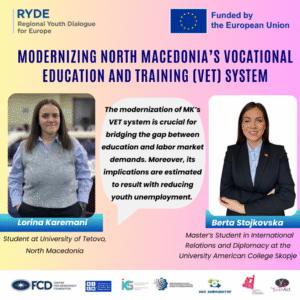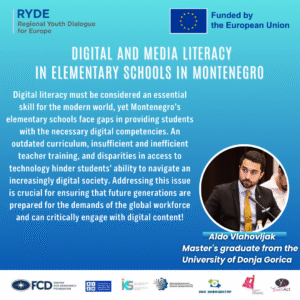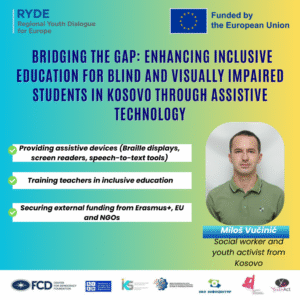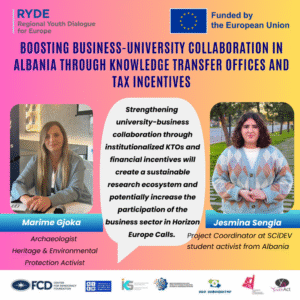On October 13, Institute for Political Studies in collaboration with the parliament of Albania, the Committee on European Affairs and the Institute for Democracy in collaboration organized the parliamentary conference “The Role of the Parliaments in the Berlin Process” in Tirana, Albania.
The conference built upon the discussions initiated during the conference “Enhancing Berlin Process through Parliamentary Dialogue” held on 12 and 13 September in Skopje. It aimed to foster a deeper sense of ownership of the Berlin Process within the Parliaments, facilitating an inter-parliamentary dialogue on their pivotal role in promoting the Berlin Process objectives and closely monitoring the commitments made by the governments, specifically within the Common Regional Market (CRM).
The conference was opened by the Speaker of the Parliament of the Republic of Albania, Ms. Lindita Nikolla, the Chairwoman of the European Affairs Committee, Ms. Jorida Tabaku, the Minister of Europe and Foreign Affairs of the Republic of Albania, Mr. Igli Hasani, the Secretary General of the Regional Cooperation Council, Ms. Majlinda Bregu, the Ambassador of the European Union Delegation to Albania, Luigi Soreca and the Executive Director of the Institute for Political Studies, Mr. Afrim Krasniqi.
Ms. Nikolla emphasized the role of Albania in the EU integration process, adding that for an integrated region we need an integrated society and the achievements from the Berlin process show the Western Balkans as a serious and committed region. “The Berlin Process will be a decade old and it has proven to be a remarkable success. The collaboration among the Western Balkan countries is a prime step. We need to shed a light on the future rather than dwell on the past. EU integration of Albania is a national objective and the Albania’s role as a stabilizing force is evident. The support for the EU in Albania is higher than any other country in the region, which shows that we are working hard to pave the way for our future within the EU” says Ms. Nikolla.
According to Ms. Bregu the responsibility for ratification of the commitments from the Berlin Process lies in the parliaments and the Western Balkan region need to work closely in order to move forward. “Since 2015 we advocated for the parliaments to become another forum as part of the Berlin process, and now we are very happy to see that through these meeting the parliaments are finally discussing among themselves. The parliaments will boost the process of implementation of the agreements that are defined in the Berlin Process. This has a symbolic meaning for us, it shows that with goodwill and collaboration, things are moving forward” stated Ms. Bregu.
In his statement, Mr. Hasani noted that the primary objective of the Berlin Process is to increase the collaboration among the Western Balkans countries. “These kinds of meetings will serve to the improvement and growth of the Berlin Process and contribute to the collaboration between the Western Balkan countries, speeding the EU integration process. Achieving the commitments from the Berlin process requires an active engagement and participation of every cell, both within the parliaments and the civil society organizations. We all know the history of the Balkans, but looking forward is the only way that this region will progress” stated Mr. Hasani.
Mr. Soreca emphasized the significance of this event, highlighting the imperative for regional cooperation and engagement. “It is important that people from the region meet and show their unity, especially in a period where the new geopolitical reality has focused all minds and made the case for EU enlargement stronger. In this context the Berlin Process plays an important role, because it is a platform to work on reform and regional integration to help prepare the region for the European Union. The EU integration will only be a reality with the support from the parliaments, through adopting the legislation but also giving active support and strategic direction” says Mr. Soreca.
Ms. Tabaku brought up the well-established tradition of debates in the region. She also emphasized the need for a more practical and central role of the parliaments in the Berlin Process. “This is not something new, our parliaments have a long tradition of debating, but the role of the parliaments in the regional integration process needs to be improved, focusing more on practicality. This should be the start of an integral process and we should be the key actors to change the situation in the region” says Ms. Tabaku.
Mr. Krasniqi mentioned the historical overview of the Berlin Process, adding that this event and the upcoming summit in Tirana will provide a positive turn to the initiative. “When the Berlin Process started, there was a great support for the initiative, but as the time passed there was a drastic decrease. The EU didn’t have a concrete strategy and the Berlin Process tried to fill in the gap. But these events and the upcoming summit in Tirana turn the initiative on a positive side. The relationship between the parliaments and civil society is also very important. Both sides benefit mutually, the parliamentary mechanisms on one side and the valuable contribution of civil society to discussions on the other side” stated Mr. Krasniqi.
The first session “The Role of the Parliaments in the Berlin process” addressed the current stance and challenges in the engagement of the Parliaments in the initiative. The session was opened by a video message from the Chairman of the European Affairs Committee in the German Bundestag, Mr. Anton Hofreiter. This was followed by a panel discussion that gathered the Chairwoman of Education and Means of Public Information Committee, Ms. Flutura Acka, the Ambassador of Spain to Albania, Mr. Alvaro Renedo Zalba, the Ambassador of the Federal Republic of Germany to Albania, Mr. Karl Bergner, the chairman of the Commission for European Affairs in the Macedonian Assembly, Mr. Arber Ademi, the deputy Chairwoman of the European Affairs Committee, Ms. Etilda Gjonaj and the Member of the Serbian Parliament, Ms. Jevrosima Pejovic,
The following panel discussion “Four freedoms and Berlin Process: Further challenges” discussed the Common Regional Market and the upcoming activities. The panel discussion featured a video message by the Chairman of the Foreign Affairs Committee in the German Bundestag. The session was moderated by the Chairman of Economy and Finance Committee, Mr. Eduard Shalsi, and the panelists were the Ambassador of Austria to Albania, Mr. Christian Steiner, the Chairwoman of the Committee for EU Integration, Ms. Elvira Kovacs, the Chairwoman of the Committee for EU Integration, Ms. Rrezarta Krasniqi and the Chairman of the Joint Committee for EU Integration, Mr. Zdenko Cosic.
The event is part of the “Parliamentary Diplomacy: Regional Cooperation through Enhanced Parliamentary Dialogue” project, which aims to promote the laws and benefits of the Berlin Process through the promotion of parliamentary diplomacy and the use of oversight mechanisms by the parliaments of the Western Balkans.
The project is implemented by six project partners in each of the six Western Balkans countries. The lead partner is the Institute for Democracy (IDSCS) – North Macedonia. The other project partners are Institute Alternativa (IA) – Montenegro, Institute for Political Studies (ISP) – Albania, CRTA – Center for Research, Transparency and Accountability – Serbia, Kosova Democratic Institute (KDI)– Kosovo, and the Network of Progressive Initiatives (NPI) – Bosnia and Herzegovina.







